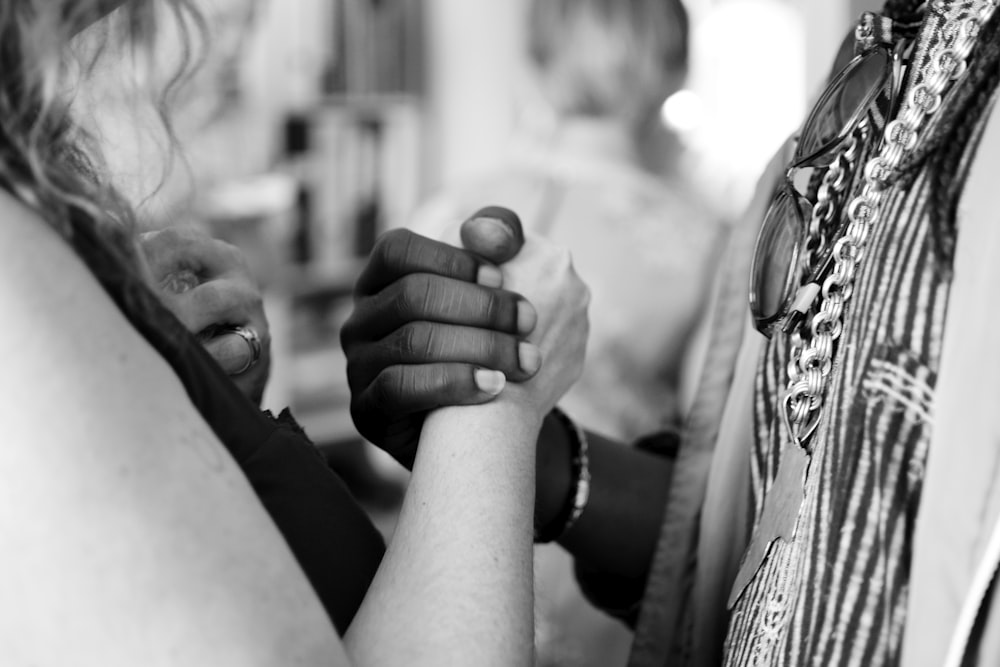This post is going to discuss some heavy topics related to disordered eating. If you or a loved one are struggling with an eating disorder, please remember that you are not alone.
The National Eating Disorder Association (NEDA) is a free resource that offers a free hotline with calling, texting, and instant messaging options. Check out their website for more information.
Call 1-800-931-2237
Text “NEDA” to 741-741.
The relationship between trauma and eating disorders
Did you know that trauma, such as bullying, sexual abuse, and domestic violence, can lead someone to participate in dangerous eating habits? According to a 2018 study in Psychology Today, 5% of eating disorder diagnosis patients were directly affected by domestic violence trauma, 5% make up physical abuse, and 8% have been victims of sexual abuse. There is a direct relationship between a person’s self-image and the environment that they are surrounded by. Check out Safe Harbor International Ministries’ blog post, “Trauma and Identity: Who Am I?” for a more in-depth look at how trauma directly affects self-image.
Domestic violence plays a significant role in disordered eating because of the detrimental effects the abuse has on a person’s mental health. It is common for survivors of abuse to try to control their bodies in dangerous ways because everything else in their environment feels so out of their control. It is important to note that abuse can lead to multiple problems, including mental illness, addiction, and disordered eating. Also, keep in mind that eating disorders are not solely caused by abuse. Other factors are at play. I also want to bring awareness that it is relatively easy for individuals to fall victim to disordered eating if their partner is verbally and physically abusing them, causing them to feel unlovable in their current body.
What do eating disorders look like?
It is necessary to talk about what eating disorders look like. It’s a common misconception that those who struggle with an eating disorder are often thin women. From a young age, most of us are taught from health class that eating disorders are romanticized and pretty. We need to understand that victims of disordered eating come in all shapes, sizes, sexual orientations, and colors. Although it is common for teenagers to struggle with eating disorders, they are just as prevalent in adults. Disordered eating is a real, serious battle. They are more than the quirky images we see of women looking in the mirror. There is no bias in abuse or disordered eating.

Gemma Chua-Tran | Unsplash
My Personal Note to You
On a personal level, I want to encourage you to hear how worthy you are. Your value doesn’t depend on your weight or your ability to control your body. The opinions of others do not define you as a human being. You are a beautiful creation of God, just as you are.
Helpful and Unhelpful Things to Say to Someone with an eating disorder:
As I wrap up this article, I want to provide some examples of helpful and unhelpful things to say to someone struggling with disordered eating. Eating disorders are a sensitive topic, and it’s crucial to know what kind of language to use with our loved ones.
According to the Center for Discovery, some phrases to avoid when conversing with a loved one suffering from an eating disorder are:
- “You have put on weight; you look great!”
- “You look so healthy.”
- “Can I have advice on how to lose weight?”
- “I wish I had your level of self-control…”
- “If you would just eat normally, you would be fine.”
The above phrases should be avoided because it enables the sufferer to view their illness positively. Healing from the trauma of an eating disorder is complicated and involved. Although many people believe that disordered eating revolves around food, it is a problematic imbalance in the brain.
Some phrases that are appropriate to say to an individual enduring the healing process of disordered eating are:
- “I know that this is difficult, but I am proud of you.”
- “You are worth more than your eating disorder.”
- “I might not completely understand, but I am here to support you in any way that I can.”
- “Let’s do a *chosen activity* together!”
- “I trust you.”
These statements are validating the human behind the illness. It’s important to remember that mental illness, including eating disorders, does not define a person.

Aarón Blanco Tejedor | Unsplash
Conclusion
I want to tell the person struggling with disordered eating; you are loved. You are needed. You are important. I hope that you feel encouraged and wrapped in support.
Written by Rebecca Kochanek, an Intern Coordinator at Safe Harbor International Ministries. For more articles, visit ww.safeharborim.com/articles/


0 Comments